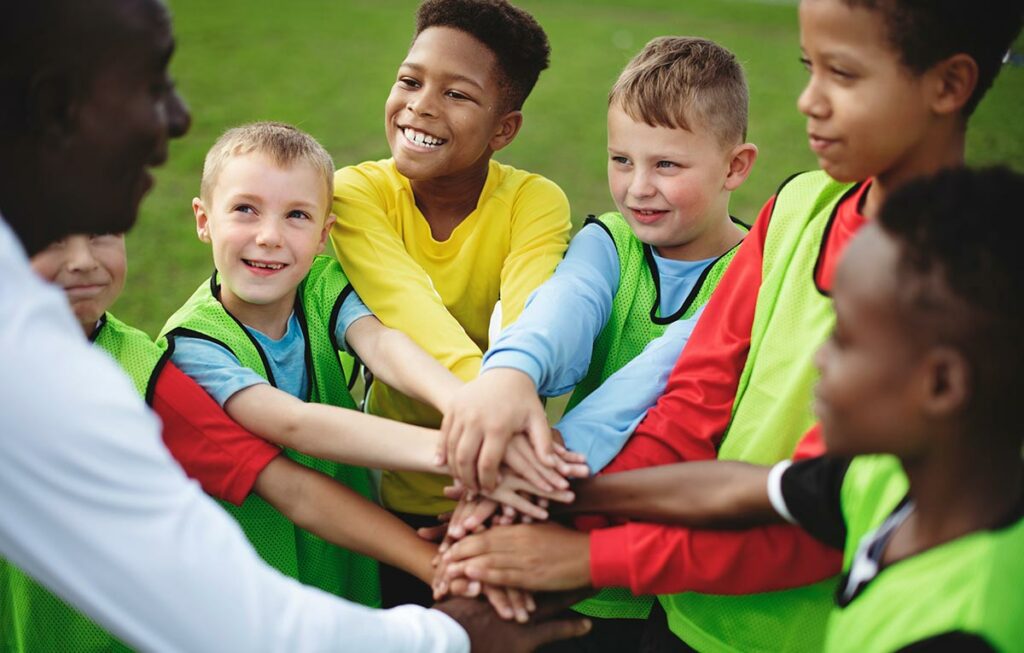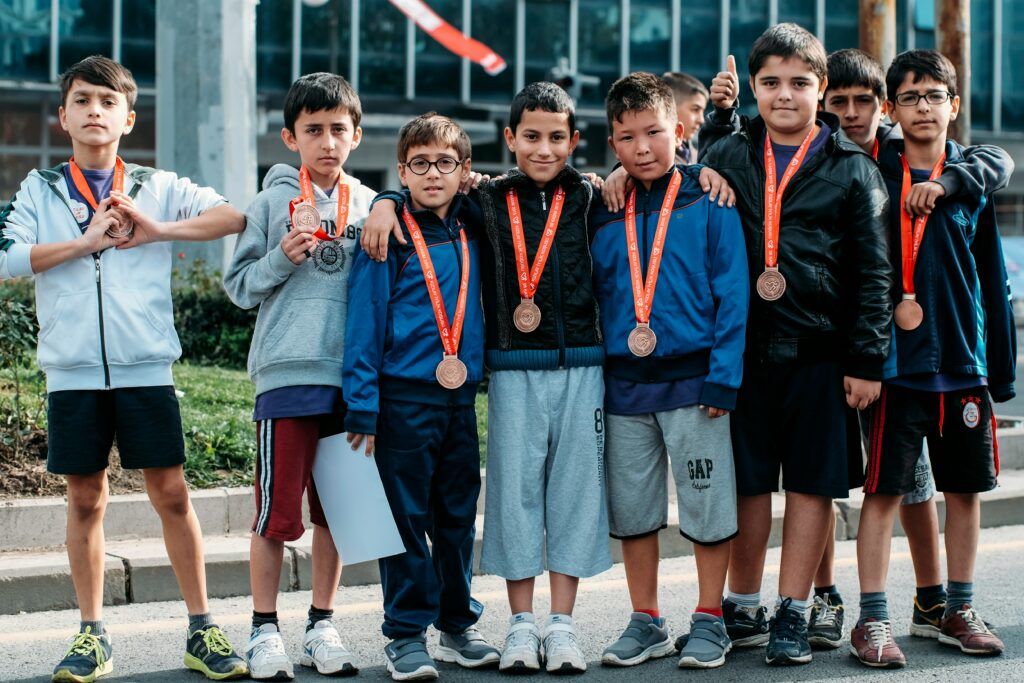
Sports play an important role in children’s lives, and not just for physical fitness. Participating in sports can help children develop critical life skills such as teamwork, leadership, and sportsmanship. These skills can be valuable throughout their lives, both in personal and professional settings.
In this article, we will explore the benefits of sports for children and how it helps in developing important life skills. We will also answer some frequently asked questions related to sports and children. So, let’s get started!
How participating in sports helps children develop important skills such as teamwork, leadership, and sportsmanship.
Teamwork
Teamwork is a crucial skill that children can develop through sports. When children participate in team sports, they learn how to work together towards a common goal. They learn how to communicate effectively with their teammates and understand the importance of supporting each other.
Moreover, children can learn how to cope with different personalities and different strengths and weaknesses among teammates. This experience can help children in their future endeavors, such as working in groups on school projects or collaborating with colleagues in the workplace.
Leadership
Participating in sports can also help children develop leadership skills. Children who participate in sports often have opportunities to take on leadership roles, such as team captain or assistant coach. Through these roles, they can learn how to motivate and inspire their teammates, make decisions, and communicate effectively.
Moreover, being a leader in sports can help children gain confidence in themselves and their abilities. This confidence can translate into other aspects of their lives, such as school and social situations.
Sportsmanship
Sportsmanship is another essential skill that children can learn through sports. Children who participate in sports can learn how to handle winning and losing gracefully. They can learn how to respect their opponents and the rules of the game. They can also learn how to control their emotions and be a good sport, even when things don’t go their way.
Moreover, children who learn sportsmanship can develop a sense of fairness and respect for others. They can also learn how to deal with disappointment and setbacks in a healthy and constructive way.
Physical and Mental Health
Participating in sports can have significant benefits for both physical and mental health. Children who engage in sports activities can develop strong muscles and bones, improve cardiovascular health, and maintain a healthy weight. Moreover, physical activity can help reduce stress, anxiety, and depression.
In addition, sports can provide an outlet for children to express themselves and relieve stress. Participating in sports can be a fun way for children to take a break from school work and other obligations.
Building Character
Participating in sports can also help children develop character. Through sports, children can learn important values such as perseverance, dedication, and hard work. They can also learn how to set goals and work towards achieving them.
Moreover, sports can teach children how to handle success and failure. They can learn how to bounce back from setbacks and develop resilience. These qualities can be valuable in all aspects of life, from academics to personal relationships.
Final Thoughts
Participating in sports can provide children with a wealth of benefits, including the development of important life skills such as teamwork, leadership, and sportsmanship. Through sports, children can learn valuable lessons that can help them in all aspects of their lives, from academics to personal relationships. It’s essential for parents to support their children’s participation in sports and ensure that they are taking proper precautions to reduce the risk of injury.
In short, participating in sports is a fun and rewarding way for children to stay physically active, develop character, and learn essential life skills. So, encourage your child to get involved in sports and see the positive impact it can have on their life.
FAQs: Frequently Asked Questions
Q. What are some of the most popular sports for children to participate in?
A. Some of the most popular sports for children include soccer, basketball, baseball, softball, volleyball, and swimming.
Q. Can children still participate in sports if they are not naturally athletic?
A. Yes, children can still participate in sports even if they are not naturally athletic. Many sports programs offer different levels of skill and experience
Q. How can parents support their children’s participation in sports?
A. Parents can support their children’s participation in sports by encouraging them to try different sports and finding the right fit for their interests and abilities. Parents can also attend their children’s games and practices, provide transportation, and help their children stay organized and prepared for practices and games.
Q. Can participating in sports lead to injuries?
A. While participating in sports can lead to injuries, taking proper precautions and using appropriate safety equipment can reduce the risk of injury. It’s also essential to ensure that children are properly trained and supervised by qualified coaches and trainers.




